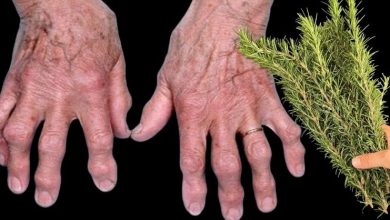Managing hypothyroidism can be challenging, as it requires a careful balance between hormone therapy and dietary choices. Although there isn’t a specific “hypothyroidism diet,” certain foods may affect thyroid function or the effectiveness of medications. Below are nine foods to limit or avoid if you have hypothyroidism, based on advice from nutritionists and medical professionals.

1. Soy-Based Foods
Soy contains isoflavones, which can interfere with iodine absorption, a vital nutrient for thyroid health. Research indicates that soy products like tofu, edamame, and soy milk may hinder thyroid hormone absorption, especially when consumed near medication times. To minimize risks, wait at least four hours after eating soy-based foods before taking thyroid medication.
Consider substituting soy with other plant-based proteins, such as lentils or chickpeas, which are less likely to impact thyroid function.
2. Cruciferous Vegetables
Raw cruciferous vegetables—such as broccoli, cauliflower, and Brussels sprouts—contain goitrogens, compounds that can interfere with iodine utilization. While these vegetables are nutritious, eating them raw in large quantities might suppress thyroid function.
Cooking these vegetables neutralizes most goitrogens, making them safer to consume in moderation.

3. Gluten
Individuals with hypothyroidism, particularly those with Hashimoto’s thyroiditis, often have celiac disease or gluten sensitivity. Gluten can trigger inflammation, potentially worsening thyroid issues and reducing medication efficacy.
If you suspect gluten sensitivity, consider testing for celiac disease and switching to gluten-free grains like quinoa or rice if necessary.
4. Processed Foods
Processed foods typically contain high sodium levels, which may heighten hypothyroid risks like high blood pressure. These foods are also low in essential nutrients and can increase inflammation. Avoid packaged snacks, frozen meals, and fast food.
Instead, focus on whole, minimally processed foods such as fresh fruits and vegetables.

5. Sugary Treats
Since hypothyroidism slows metabolism, weight gain can occur more easily. Sugary foods like pastries, candy, and soda add empty calories, which may contribute to weight gain and energy level fluctuations.
To satisfy sweet cravings, opt for natural alternatives like honey or enjoy fruits such as berries.
6. High-Fat Foods
Foods high in fat, such as fried items, fatty meats, and spreads like butter, can hinder the absorption of thyroid hormone replacement medications. Diets rich in fat may also impair the thyroid’s ability to produce hormones efficiently.
Instead, choose lean protein sources and cook with heart-healthy oils like olive or avocado oil.

7. Coffee
Caffeine can interfere with the absorption of thyroid medications if consumed too soon after taking them. Studies reveal that people who drink coffee with their medication often struggle with unstable thyroid levels.
Take your medication with water and wait at least 30 minutes before drinking coffee.
8. Alcohol
Alcohol can negatively affect thyroid hormone levels and impair the thyroid’s ability to produce hormones. Over time, heavy alcohol consumption may worsen hypothyroid symptoms and reduce the effectiveness of treatment.
To support thyroid health, consider limiting or avoiding alcohol altogether.

9.Certain Fruits and Nuts
Goitrogenic fruits like peaches, pears, and strawberries can impact iodine absorption. Similarly, nuts like almonds and walnuts have mild goitrogenic properties.
Focus on antioxidant-rich fruits like blueberries or cherries, and consume nuts in moderation to enjoy their benefits while minimizing potential thyroid effects.

Tips for Managing Hypothyroidism
While some foods can worsen symptoms, managing hypothyroidism doesn’t require overly restrictive eating habits. Incorporate foods rich in selenium (such as Brazil nuts) and zinc (found in lean meats and legumes) to support thyroid health. Always work with a healthcare provider or dietitian to create a tailored, balanced diet.
By understanding which foods to limit, you can better manage hypothyroidism and improve overall well-being. Always consult a medical professional before making significant dietary changes.






